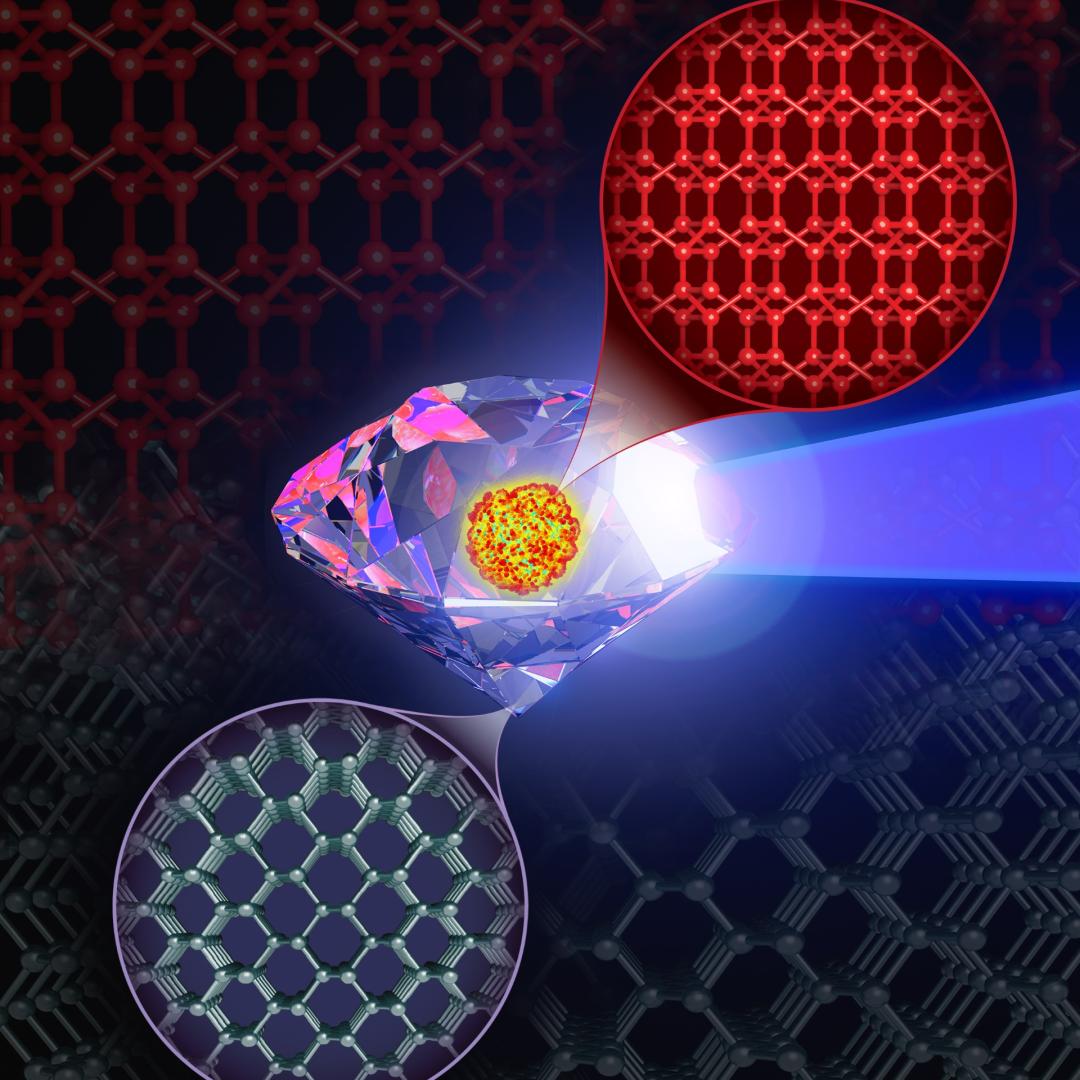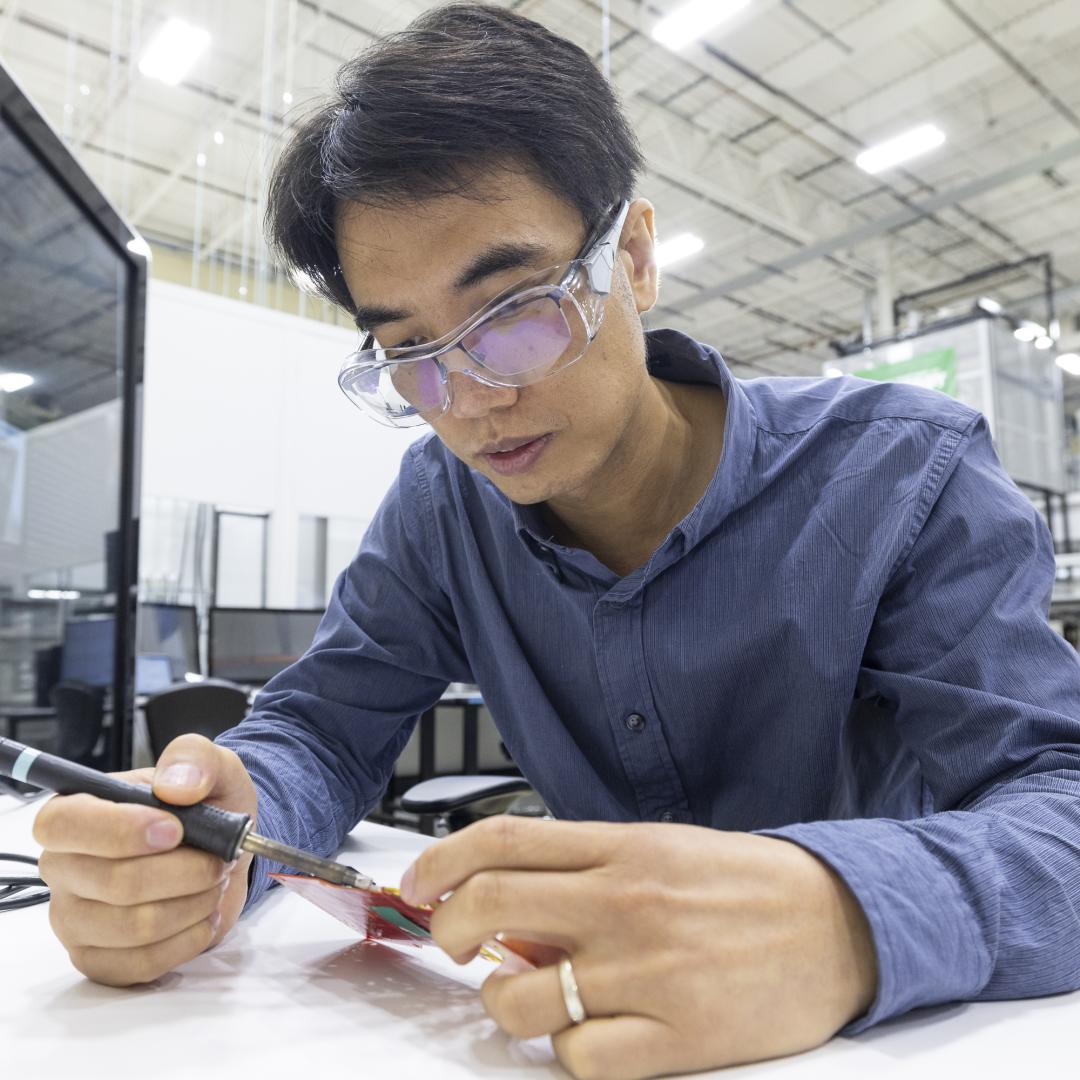
Filter News
Area of Research
- Advanced Manufacturing (1)
- Biology and Environment (38)
- Clean Energy (34)
- Computational Biology (1)
- Computer Science (1)
- Electricity and Smart Grid (1)
- Functional Materials for Energy (1)
- Fusion and Fission (10)
- Fusion Energy (1)
- Isotopes (3)
- Materials (38)
- Materials for Computing (8)
- National Security (11)
- Neutron Science (12)
- Nuclear Science and Technology (6)
- Quantum information Science (2)
- Supercomputing (46)
News Type
News Topics
- (-) Advanced Reactors (13)
- (-) Artificial Intelligence (56)
- (-) Exascale Computing (29)
- (-) Microscopy (28)
- (-) Nanotechnology (28)
- (-) Polymers (13)
- (-) Renewable Energy (1)
- (-) Security (14)
- (-) Space Exploration (13)
- (-) Sustainable Energy (55)
- 3-D Printing/Advanced Manufacturing (59)
- Big Data (31)
- Bioenergy (57)
- Biology (66)
- Biomedical (33)
- Biotechnology (11)
- Buildings (24)
- Chemical Sciences (36)
- Clean Water (14)
- Climate Change (57)
- Composites (12)
- Computer Science (103)
- Coronavirus (21)
- Critical Materials (5)
- Cybersecurity (20)
- Decarbonization (49)
- Education (1)
- Emergency (2)
- Energy Storage (44)
- Environment (118)
- Fossil Energy (4)
- Frontier (28)
- Fusion (39)
- Grid (28)
- High-Performance Computing (56)
- Hydropower (5)
- Irradiation (1)
- Isotopes (35)
- ITER (3)
- Machine Learning (24)
- Materials (74)
- Materials Science (66)
- Mathematics (7)
- Mercury (7)
- Microelectronics (2)
- Molten Salt (2)
- National Security (46)
- Net Zero (9)
- Neutron Science (59)
- Nuclear Energy (68)
- Partnerships (23)
- Physics (35)
- Quantum Computing (23)
- Quantum Science (34)
- Simulation (36)
- Software (1)
- Statistics (1)
- Summit (33)
- Transformational Challenge Reactor (4)
- Transportation (37)
Media Contacts
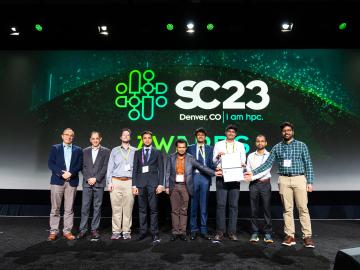
A team of eight scientists won the Association for Computing Machinery’s 2023 Gordon Bell Prize for their study that used the world’s first exascale supercomputer to run one of the largest simulations of an alloy ever and achieve near-quantum accuracy.

Scientists at ORNL used their knowledge of complex ecosystem processes, energy systems, human dynamics, computational science and Earth-scale modeling to inform the nation’s latest National Climate Assessment, which draws attention to vulnerabilities and resilience opportunities in every region of the country.

Researchers used the world’s first exascale supercomputer to run one of the largest simulations of an alloy ever and achieve near-quantum accuracy.
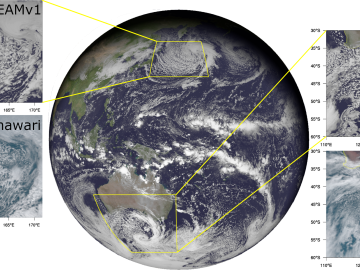
The world’s first exascale supercomputer will help scientists peer into the future of global climate change and open a window into weather patterns that could affect the world a generation from now.

Anne Campbell, a researcher at ORNL, recently won the Young Leaders Professional Development Award from the Minerals, Metals & Materials Society, or TMS, and has been chosen as the first recipient of the Young Leaders International Scholar Program award from TMS and the Korean Institute of Metals and Materials, or KIM.

Researchers at the Department of Energy’s Oak Ridge National Laboratory, in collaboration with NASA, are taking additive manufacturing to the final frontier by 3D printing the same kind of wheel as the design used by NASA for its robotic lunar rover, demonstrating the technology for specialized parts needed for space exploration.
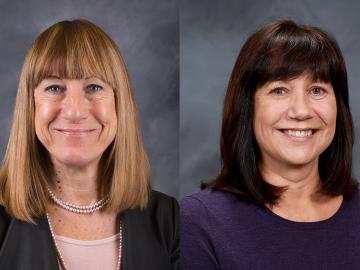
ORNL’s Fulvia Pilat and Karren More recently participated in the inaugural 2023 Nanotechnology Infrastructure Leaders Summit and Workshop at the White House.

Scientist Xiaohan Yang’s research at the Department of Energy’s Oak Ridge National Laboratory focuses on transforming plants to make them better sources of renewable energy and carbon storage.
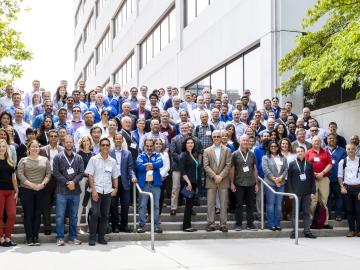
ORNL hosted its annual Smoky Mountains Computational Sciences and Engineering Conference in person for the first time since the COVID-19 pandemic.
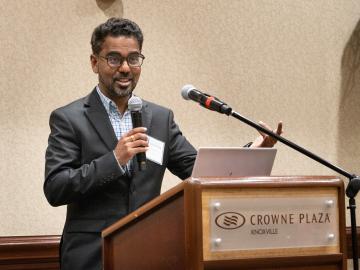
The Department of Energy’s Oak Ridge National Laboratory hosted its Smoky Mountains Computational Science and Engineering Conference for the first time in person since the COVID pandemic broke in 2020. The conference, which celebrated its 20th consecutive year, took place at the Crowne Plaza Hotel in downtown Knoxville, Tenn., in late August.


